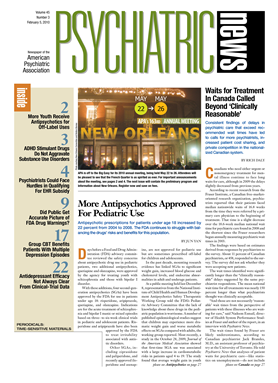The use of defensive medicine—long dismissed as a myth by some lawyer groups—is a major driver of medical costs, and efforts to reduce the practice through tort reform could yield billions of dollars in health care savings, a recent analysis by the nonpartisan Congressional Budget Office (CBO) concluded.
The report was released last December in follow-up to an initial report in October 2009 on tort-reform legislative proposals. Although the report did not use the term “defensive medicine,” it described the impact of clinicians ordering more tests or procedures than are necessary solely to protect themselves from lawsuits.
The CBO researchers concluded that medical-liability reform proposals at the federal level would save at least $54 billion over 10 years, in part by reducing the need for physicians to use defensive medicine.
Lisa Rickard, president of the U.S. Chamber Institute for Legal Reform, called the finding on cost savings “momentous.”
“Neglecting to include medical liability reform [in the health care overhaul] benefits only the plaintiffs' lawyers,” stated Pickard in a written statement. “Including it benefits every American participating in our health care system.”
Advocates for tort reform contend that the CBO estimate of cost savings from such legislation is likely an underestimate. Previous studies have concluded that the real cost of defensive medicine is between $151 billion and $210 billion annually. That cost could be reduced or eliminated, they maintain, through reforms such as caps on noneconomic damages and the creation of protections from lawsuits for physicians who utilize best medical practices.
President Obama spoke positively in the summer of 2009 about the incorporation of legal protections for physicians who adhere to best-practice guidelines within health care reform, although he rejected caps on noneconomic damages that former President George W. Bush supported. However, Democratic leaders in Congress have kept nearly all tort-reform proposals out of the health care reform legislation. For example, Democrats in the Senate rejected an amendment to the health reform bill by Sen. John Ensign (R-Nev.) that would have established caps on noneconomic damages.
“The whole premise of a medical malpractice ‘crisis’ is unfounded,” said Senate Majority Leader Harry Reid (D-Nev.) in a frequently cited Senate floor speech on tort reform in 2006.
Likewise, trial-lawyer advocates have minimized the impact and even the existence of defensive medicine as a response to the threat of lawsuits.
“To the extent that defensive medicine does exist, research has found that the motivation behind it is not liability but rather a desire to simply help a patient or, in some cases, boost physician income,” according to a statement by the American Association for Justice, a national attorney advocacy group.
Conversely, physician groups—including APA—have advocated for the inclusion of tort-reform provisions within the health care overhaul effort as an important way to reduce the rise of ever-increasing health care costs.
While the cost of malpractice insurance for psychiatrists ranks among the lowest in medicine, the price is still high: the average psychiatrist malpractice policy costs over $6,000 each year, according to a leading psychiatrist insurer.
